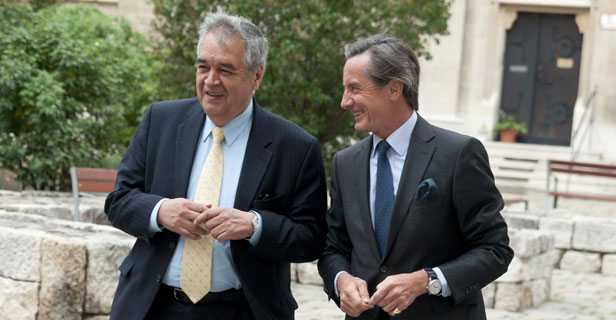
Assistant Secretary-General and UN Senior Coordinator for the Cholera Response in Haiti, Pedro Medrano Rojas, and Director General for Development Cooperation and Humanitarian Affairs in Austria, Peter Launsky-Tieffenthal, met today in Vienna to discuss about the alarming situation of the cholera epidemic this year and explore ways to support the Government of Haiti to tackle the disease.
Haiti continues to host the largest cholera epidemic in the Western Hemisphere. Since its emergence in October 2010, after the earthquake, there have been some 735,000 recorded cases of and 8,900 deaths from cholera.
More than 12,000 of those cases and 113 deaths occurred in 2015 alone.
After three years of significant gains in the fight against cholera, the situation in Haiti has changed. The cholera epidemic is going its worst moment since 2012. Due to heavy rains in late September, partners leaving the country, faecal contamination in urban areas and lack of resources, cholera caseload has jumped from 1,000 cases a month to nearly 1,000 every week between January and March 2015.
The World Health Organization projected in January a conservative estimate of 28,000 new cholera cases for 2015, however, given the current trend, it would appear that the number would be higher.
Despite the gravity of the situation and the worrying prospects for 2015, cholera has fallen off the radar of most donors. Insufficient resources have already closed 91 out of 250 cholera treatment centres and caused many partners to withdraw from Haiti.
The UN has underscored a two-track approach: addressing the immediate needs to respond to and treat cholera cases, while working towards durable solutions of strengthening health, water and sanitation systems. To this end, there needs to be a nimble response to cholera alerts and outbreaks throughout the country.
The UN requires approximately $36.5 million for humanitarian response to cholera in 2015 and about $1.9 million to vaccinate 313,000 people.
Source: Office of the Secretary-General's Coordinator for Cholera in Haiti